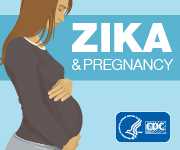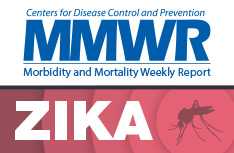Family and Support Services
Support for Families of Babies Affected by Zika
Families of babies affected by Zika virus (Zika) may be overwhelmed, worried, and unsure of next steps in caring for their baby. A baby affected by Zika virus may be born with significant health issues, like microcephaly. Others may not have apparent symptoms at birth, but may develop them over time. Because we are still learning about the long term effects of Zika infection during pregnancy, it is important that parents work with their doctors to manage the medical care of their baby.
Parents, you know your baby best. If you think there is a problem or are concerned about your baby’s health and development, talk to your baby’s doctor and share your concerns. In addition, there are services, like early intervention, that can help with your baby’s development and support programs that can help connect you with other families. The resources below can provide guidance and support for families and caregivers.
General Zika Information
Family Support
Family Voices
Family Voices provides information and education about the care of children with special health needs. The website includes links to resources and information on advocacy and Family to Family Health Information Centers [PDF-832K].
- See also: Zika Family Resources [PDF-402K]
Center for Parent Information and Resources
Find information to help support you in caring for your child with a disability, or helping children with disabilities achieve their full potential.
Parent to Parent-USA
Parent to Parent programs provide emotional and informational support to families of children who have special needs, most notably by matching parents seeking support with an experienced, trained ‘support parent’.
Partnerships for Parents
Partnership for Parents was created by parents, for parents. It is a resource to share stories and experiences, get support, and find guidance through a child’s illness.
KidsHealth Support for Parents of Kids with Special Needs
Find tips and information on caring for a child with special needs.
Monitoring a Child’s Development
Please keep in mind these resources do not specifically address Zika virus, but are helpful in monitoring a child’s development.
CDC’s “Learn the Signs. Act Early.” Program
The campaign aims to promote an awareness of healthy developmental milestones in early childhood, the importance of tracking each child’s development and the importance of acting early if there are concerns. Visit the “Learn the Signs. Act Early.” website to download or order free tools and resources to help parents and other caregivers keep track of their child’s development and get help if they are concerned.
- See also: How to Help Your Child [PDF-279K], How to Talk with the Doctor [PDF-273K], Milestones [PDF-200K]
Birth to 5: Watch Me Thrive
A coordinated federal effort to encourage healthy child development, behavioral and developmental screening for children, and support for the families and providers who care for them.
Physical Developmental Delays: What to Look For (Tool)
An interactive web-based tool developed by the American Academy of Pediatrics that provides information on what should parents look for when monitoring their child for a physical developmental delay.
CDC’s Hearing Loss Resources
This website has tools and information about hearing loss for families.
Children and Vision
The American Optometric Association website provides information about vision screening for infants.
My Child Without Limits
A website that provides knowledge, resources, and a network for families seeking support and information on disabilities.
CDC’s Developmental Disabilities Resources
Find links to websites with information on developmental disabilities.
Resources and Services
Zika Care Connect
Zika Care Connect (ZCC) aims to improve access to specialty healthcare services for the management of Zika virus infection during pregnancy and outcomes in infants caused by Zika. Developed by CDC and maintained in collaboration with March of Dimes, ZCC establishes a network of specialized healthcare providers who can care for patients and families affected by Zika virus. ZCC will help families find specialty healthcare services and identify providers whose practice meets their needs (e.g., location, language, insurance).
Early Intervention
Early intervention (before school age) can have a significant impact on a child’s ability to learn new skills and the support families have to help the child. Early intervention includes a range of targeted services to help young children who have developmental delays or specific health conditions. Services can include special instruction, physical and occupational therapy, speech and language therapy, and other services to help young children. Every US state and territory provides these services through its own comprehensive, coordinated program. Federally funded early intervention services may be offered for free or at low cost to families.
- Families can contact their local early intervention system to learn how to access these services. Visit CDC’s Early Intervention Contacts page for early intervention contacts by state, commonwealth or territory.
Early Head Start
Early Head Start provides early, continuous, intensive, and comprehensive child development and family support services to low-income infants, toddlers and their families, along with pregnant women and their families.
Early and Periodic Screening, Diagnostics and Treatment (EPSDT)
The EPSDT program provides health screenings, diagnostic tests, and treatment of health problems for children and adolescents under the age of 21 covered under Medicaid.
- Page last reviewed: March 29, 2017
- Page last updated: March 29, 2017
- Content source:





 ShareCompartir
ShareCompartir